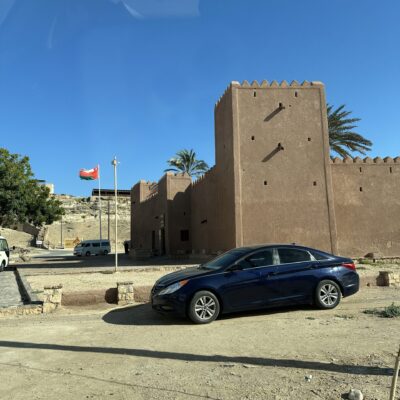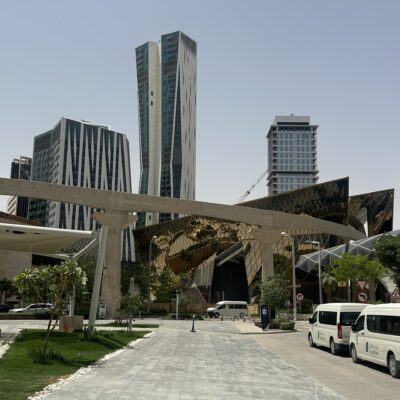
Saudi vs Oman: Subtle Etiquette Differences You Need to Know
Navigating the Gulf region requires more than just understanding Arabic customs—each nation has developed its own distinct cultural personality over centuries. While Saudi Arabia and Oman share Islamic foundations and Arabian heritage, the subtle differences in their social protocols can make or break your business relationships and personal interactions. As someone who has guided countless professionals through these nuanced waters, I’ve witnessed how small etiquette missteps can derail promising partnerships, while cultural sensitivity opens doors that remain closed to others.
The Foundation: Understanding Cultural DNA
Saudi Arabia’s etiquette framework is built around the concept of waqar (dignity) and operates within a more formal, hierarchical structure influenced by Wahhabi traditions and the kingdom’s role as guardian of Islam’s holiest sites. The pace is deliberate, the protocols are established, and respect flows through clearly defined channels.
Oman presents a contrasting approach rooted in hilm (wisdom and patience). The sultanate’s maritime history as a trading hub has created a culture that values pragmatic diplomacy over rigid formality. Omanis have mastered the art of gentle persistence and indirect communication, making their etiquette more fluid but equally sophisticated.
Business Meeting Dynamics: Reading the Room
Saudi Arabia: The Structured Approach
Saudi business meetings follow predictable patterns that reward preparation and patience. Arrive exactly on time—not early, which can appear presumptuous, and certainly not late. The meeting will begin with extensive mushafahat (handshaking) and inquiries about family, health, and general wellbeing. This is not small talk; it is relationship architecture.
Seating arrangements matter immensely. Wait to be seated, as positions reflect status and relationship dynamics. The most honoured guest sits to the right of the host, with subsequent positions following age and importance. During discussions, present ideas to the most senior person first, even if they aren’t the decision-maker. The Saudi concept of shura(consultation) means decisions flow through established hierarchies.
Module 4 in our Gulf Etiquette Success Playbook looks at exactly this and how to get this right.
Oman: The Consensus Builder
Omani meetings operate on relationship fluidity rather than rigid hierarchy. While punctuality is respected, there is greater tolerance for the unexpected. The famous Omani phrase “bukra fil mishmish” (tomorrow when apricots bloom) reflects their philosophical approach to time—things happen when they are meant to happen.
The genius of Omani meeting culture lies in their majlis tradition. Unlike the more formal Saudi equivalent, Omani majlis sessions blend business with social interaction seamlessly. Ideas are tested through story-telling, analogies, and gentle probing rather than direct presentation. Success comes from reading emotional undercurrents and building collective comfort with your proposal.
Gift-Giving Protocols: Beyond Basic Courtesy
Saudi Sensitivities
Saudi gift-giving operates within strict religious parameters but offers rich opportunities for relationship building. Avoid anything made from pigskin, alcohol-related items, or overly personal gifts. Instead, focus on items that reflect quality craftsmanship—premium dates, artisanal perfumes, or technology accessories.
The presentation ritual is crucial. Use your right hand for giving and receiving, and never examine a gift in front of the giver unless specifically invited to do so. The Saudi concept of karam (generosity) means your gifts will likely be reciprocated with something of greater value, creating a positive spiral of relationship building.
Omani Appreciation
Omanis approach gift-giving with their characteristic subtlety. They prefer gifts that demonstrate thoughtfulness over expense—a book about Omani history, frankincense from their homeland, or something representing your own culture. The key is showing you have invested time in understanding their interests.
Unlike Saudi Arabia’s more formal presentation style, Omanis often give gifts casually, sometimes at unexpected moments. Reciprocate this natural approach, but ensure your gifts reflect the same level of consideration you’ve received.
Communication Styles: Direct vs. Diplomatic
Saudi Directness Within Respect
Saudi communication blends Arabian directness with Islamic courtesy. When Saudis disagree, they’ll often use phrases like “ma’a kull ihtirami” (with all respect) before presenting alternative viewpoints. This isn’t diplomatic softening—it’s maintaining dignity while engaging in substantive discussion.
Learn to recognise when “inshallah” means “yes, God willing” versus “probably not”. Context, tone, and body language provide the real message. Saudis appreciate foreigners who can engage directly while maintaining proper respect protocols.
Omani Indirection Mastery
Omani communication is poetry in motion. They have elevated indirect discourse to an art form, using stories, metaphors, and gentle questioning to guide conversations toward desired outcomes. When an Omani says “wallahu a’lam” (God knows best), they might be politely disagreeing, expressing uncertainty, or simply buying time to consider your proposal.
The phrase “habibi, mafi mushkila” (my friend, no problem) can mean anything from genuine agreement to polite deflection. Success with Omanis requires developing patience for circular conversations that eventually spiral toward clarity.
Social Dining: Beyond Basic Table Manners
Saudi Feast Protocols
Saudi dining etiquette reflects their Bedouin heritage and Islamic principles. If invited to a Saudi home, arrive slightly late—punctuality can suggest impatience for food over fellowship. Meals are communal experiences where relationship building happens organically.
The famous Saudi hospitality means you’ll be served continuously. The polite way to signal fullness is placing your right hand over your heart and saying “kafani, Allah yikrimak” (I’m satisfied, may God honour you). Never refuse the first offer of food or drink, as this can be perceived as rejecting hospitality.
Omani Refinement
Omani dining culture reflects their historical connections to India, East Africa, and Persia. Meals are quieter affairs focused on food appreciation and intimate conversation. Omanis are proud of their unique dishes—compliment the specific flavours and ask about ingredients to show genuine interest.
The Omani concept of “diyafa” (hospitality) is less overwhelming than Saudi generosity but equally sincere. They prefer guests who appreciate quality over quantity, making thoughtful comments about the meal’s preparation and presentation.
Prayer Time Navigation: Showing Respect
Both cultures pause for Islamic prayers five times daily, but their expectations for non-Muslims differ subtly. Saudis generally prefer that business stops completely during prayer times, using these breaks for reflection or informal relationship building. Omanis are more flexible, often accommodating non-Muslim colleagues’ schedules while maintaining their own religious obligations.
Building Long-Term Relationships: The Strategic View
Saudi relationships are built through consistent demonstration of respect for hierarchy, Islamic values, and family honour. Invest time in understanding family connections and business lineages. Success comes from becoming a trusted advisor who enhances their reputation within their community.
Omani relationships develop through shared experiences and mutual respect for wisdom over authority. They value partners who can contribute diverse perspectives while appreciating Omani cultural uniqueness. The goal is becoming someone they genuinely enjoy spending time with, whether business is involved or not.
Your Cultural Navigation Strategy
Mastering Gulf etiquette isn’t about memorising rules—it’s about developing cultural intuition that allows you to adapt smoothly between different environments. The same day might require Saudi formality in the morning and Omani flexibility in the afternoon. It is best to go there prepared and you can easily do this with our: Gulf Etiquette Success Playbook here.
Success in the Gulf region comes from understanding that each culture’s etiquette reflects deeper values about relationship building, respect, and social harmony. When you demonstrate genuine appreciation for these underlying principles, the specific protocols become natural extensions of authentic cross-cultural communication.
The Gulf region rewards those who invest time in understanding its subtle cultural landscapes. By appreciating the elegant differences between Saudi structure and Omani fluidity, you position yourself as someone who doesn’t just do business in the region—you belong there.
















This Post Has 0 Comments